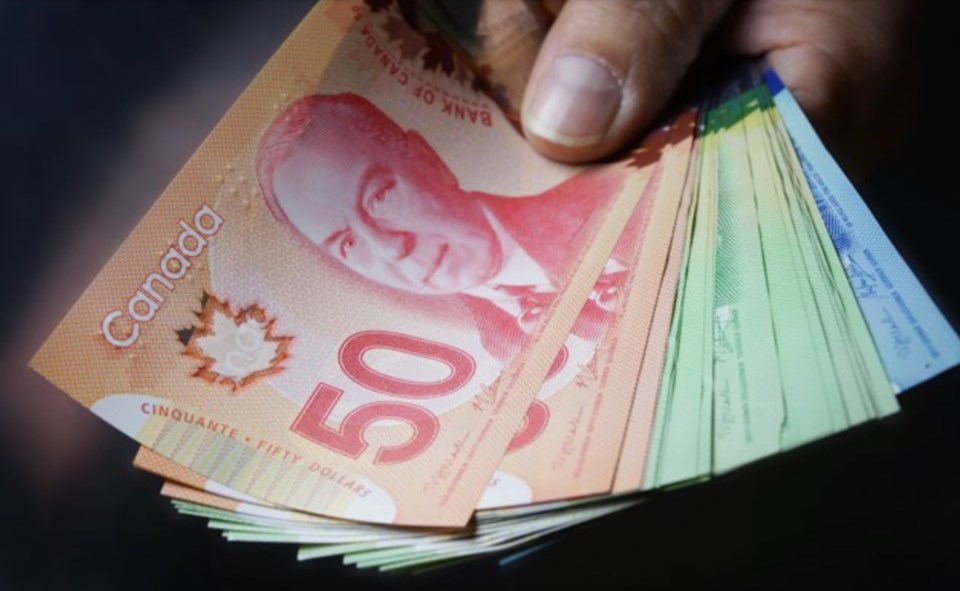Now that the Christmas holidays are safely behind us, it’s time for Barrie councillors to get down to brass tacks.
They meet for the first time in 2023 on Wednesday, and the elephant in the room is this year’s operating and capital budgets.
Government budgets are dull, eh?
They can be, until people check their wallets and wonder where the money went. Then they get angry.
The budget city council is scheduled to approve in mid-February does two basic things. It sets service levels in Barrie for the things city hall provides — snow plowing, garbage pick-up, park maintenance, road construction, the operation of recreation facilities, etc.
Emergency services, too, although there’s a lesser degree of council control, as public safety isn’t left in bean-counting hands, for obvious reasons.
And the annual budget sets property taxes and fees, which pay for all of the above.
Can most Barrie homeowners afford to pay higher taxes and fees, the latter for things like water and sewer, this year?
Or what city services will residents be willing to do without to avoid paying higher taxes?
That’s the rub, really, isn’t it?
Oh, yes, during the Barrie election campaign last fall, voters heard the usual babble about finding efficiencies in city spending to save money so taxes need not rise, or at least not increase as much.
But city staff already do this and, in fact, they’re paid to do it, so there’s rarely much savings.
All of which leaves our 11 council members — including Mayor Alex Nuttall, who has the same one vote as ward councillors — with a dilemma: What will this year’s property tax increase look like for homeowners?
Last year, it was 2.94 per cent more, which, on a typical city home assessed at $362,740, equalled an increase of almost $132 — bringing property taxes on that house to $4,612 last year.
That 2.94 per cent increase is a blended number, for municipal and education taxes, which almost never increase, and includes .75 per cent more dedicated infrastructure renewal funding, which is used to replace and renew Barrie’s roads, pipes and buildings.
Can Barrie residents afford something similar this year?
Probably the bigger question is can this council get anywhere near only a three per cent property tax increase this year?
Because, for example, you can’t really compare inflation now with what it was a year ago — or at least how much food, gasoline, utilities, insurance bills, borrowing costs, etc., have increased. City services face the same strains.
And there are other pressures.
The annual Barrie Police Service budget, for example, is normally about 20 per cent of the city’s operating budget. Last time we checked, Barrie police wanted 7.28 per cent more or a $3.4-million increase to its budget this year.
It’s also worth noting police spending is more like an invoice than a budget, because our police determine public safety, not our politicians, as much as some would like to.
Budget pressures are never just financial, of course. They’re political, too.
A key plank in Nuttall’s election platform during the mayoral campaign, for example, was a property tax freeze. The new mayor basically admitted the night he was sworn into office, at council’s Nov. 16, 2022 inaugural meeting, this probably wasn’t going to happen.
“While we strive to freeze city hall’s operating budget, we must be realistic that we haven’t been set up for success and it’s incredibly unlikely that this will be achieved,” the mayor said that night.
No one who was paying attention believed a tax freeze was probable, whether this year or for this term of council. There are just too many city costs that increase every year.
City employees, who provide the services, are mostly union members with collective bargaining agreements containing salary and benefit increases each year, for example.
So, it will always cost more, unless the politicians want to reduce service levels, which is usually unpopular with residents.
And the City of Barrie’s main sources of revenue are property taxes and fees — along with some funding from the provincial and federal governments, which comes from the same taxpayer as city property taxes.
So, that’s what this particular elephant looks like, in a very crowded room. It’s large, it’s imposing and it’s likely going to cost you more than you want to pay.
But you will have to pay it anyway.
Bob Bruton covers city hall for BarrieToday.



